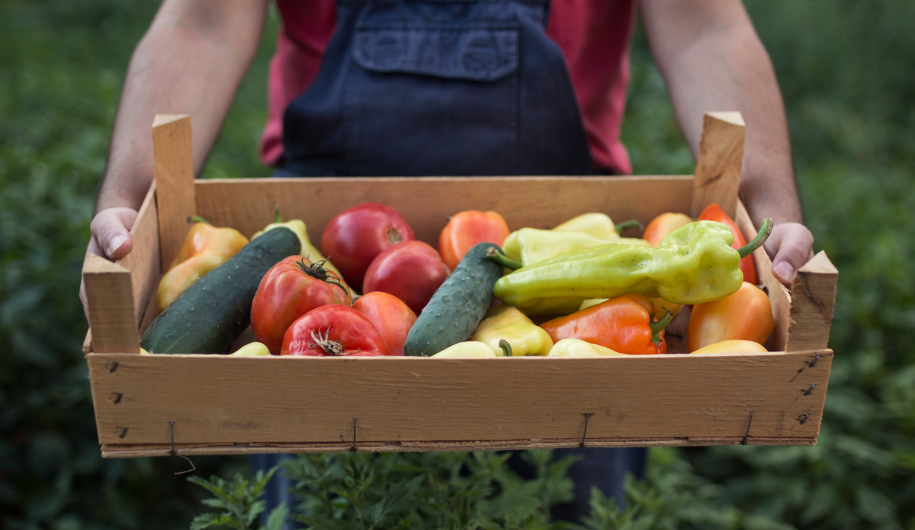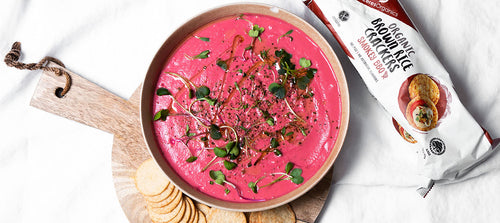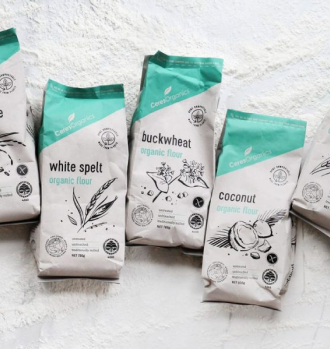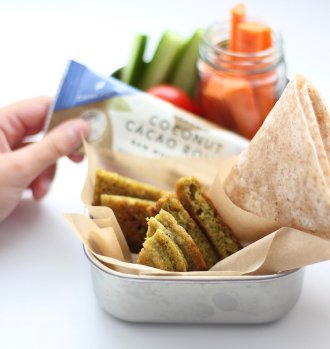
Did you know that Organics bans over 700 chemicals? That’s right. There is a cocktail of chemicals that we are potentially exposed to in our daily lives, and we just don’t know the long-term consequences of these. Our diet is one of the biggest sources of exposure, and unfortunately, our youngest are the most vulnerable because they consume more in proportion to their body weight and tend to eat more of the types of food most heavily sprayed, such as fruit.
Your best way to minimise your and your families exposure is to choose organic food. While conventional agriculture relies on synthetic pesticides, herbicides and fungicides, residues of which can remain even after washing and cooking, certified organic produce is grown using only naturally derived pesticides, such as citronella and clove oil. Organic crops are allowed grow at their natural pace, without synthetic fertilisers that artificially accelerate their development.
That’s why at Ceres Organics, we’re on a mission to bring organics into everyday life for everyone. Our extensive range of certified organic products covers all your pantry needs, plus, we have a range of delicious organic fresh produce available in supermarkets and organic stores across Australia. Just look for the Ceres Organics logo!
Now, in an ideal world, everyone would be able to eat organic food all the time. But we understand that’s not always possible (though we’re doing everything we can to make that dream a reality!). Factors like price, seasonality, availability and location, all play a role in influencing our shopping choices. That’s where the Dirty Dozen and Clean 15 lists can help. These lists highlight which fruits and vegetables are best bought organic and which are the safest conventional options if you need to compromise.
What are the Dirty Dozen and Clean 15?
The Environmental Working Group (EWG) has published these lists nearly every year since 2004 to help consumers identify produce with the highest and lowest pesticide levels when grown non-organically. The Dirty Dozen identifies the most contaminated foods, while the Clean 15 showcases the least. The latest release in 2024, is based on an analysis of 46 fruit and vegetables.
Dirty Dozen 2024 (most pesticide residues)
- Strawberries
- Spinach
- Kale
- Grapes
- Peaches
- Pears
- Nectarines
- Apples
- Capsicum (Bell Peppers)
- Cherries
- Blueberries
- Green Beans
Clean 15 2024 (Lowest pesticide residues)
- Carrots
- Sweet Potatoes
- Mangoes
- Mushrooms
- Watermelon
- Cabbage
- Kiwifruit
- Honeydew Melon
- Asparagus
- Sweet Peas (Frozen)
- Papaya
- Onions
- Pineapple
- Sweetcorn
- Avocados
It’s important to note that, while the Clean 15 foods have lower pesticide residues, they are still grown using conventional methods that deplete soil nutrients and contribute to environmental pollution. Organic farming isn’t just about avoiding pesticides, it’s about promoting healthy soil, water quality, and biodiversity. You can learn more about the benefits of organics here.
How relevant are these lists to AU?
While the EWG is based in the US, the trends are similar worldwide. Generally, fruit and vegetables with thin, permeable skin, like berries, tend to have higher pesticide residues as it is easier for these to penetrate the flesh.
Tips for avoiding the Dirty Dozen in AU
Here are some practical ways to reduce your pesticide exposure:
- Buy organic when you can! Ceres Organics has a range of pantry staples, available at supermarkets and organic stores nationwide.
- Stock up on organic produce when it’s in season. It’s often more affordable, and you can freeze, preserve, or batch-cook for later use.
- Keep the Dirty Dozen and Clean 15 lists in mind when eating out. Most restaurants don’t use organic ingredients, so choosing items with lower pesticide exposure can help.
- Consider supplementing with organic superfood powders when fresh organic produce isn’t available. Ceres Organics has a great range which you can find here!
- Be wary of misleading food labels. Terms like “natural” or “homegrown” don’t mean pesticide-free. Look for certified organic labelling for assurance.
- Opt for frozen or canned organic produce as a budget-friendly alternative when fresh organic options aren’t accessible. Stock up on our organic canned tomatoes and beans here!
Why Choose Ceres Organics?
If it has our brand on it, it’s certified organic – guaranteed. That means it’s grown and processed without the use harmful synthetic chemicals, or artificial ingredients. We partner with growers who care about the health of the soil, water, and ecosystems so every bite is a step toward a healthier planet. Look for the Ceres Organics label in your local store and taste the difference real food makes.
Every Small Step Counts
While it’s not always possible to eat completely organic, being aware of food with higher levels of pesticides can help you reduce your chemical intake. Even small changes, like swapping a few key items for organic alternatives, can lead to significant benefits for both your health and the planet. At Ceres Organics, we believe organic production is the only sustainable option for protecting our health, our planet and our future generations.





